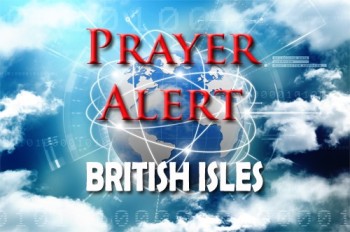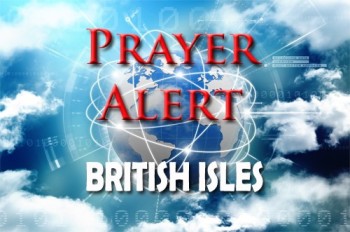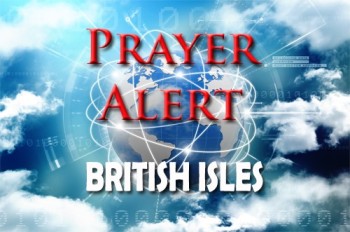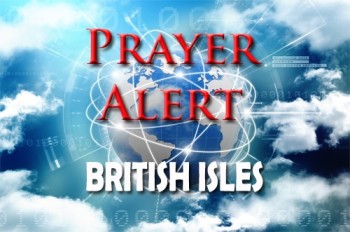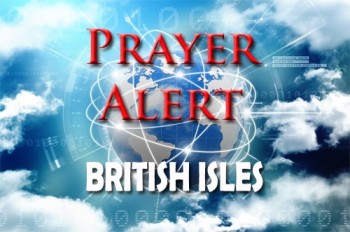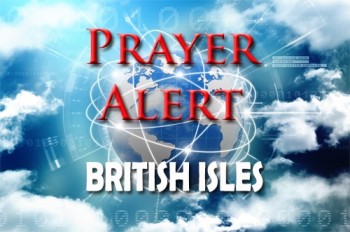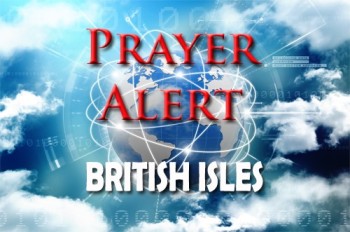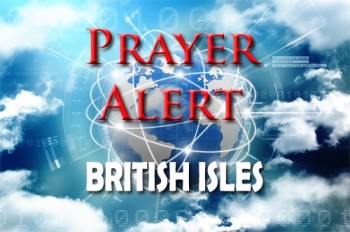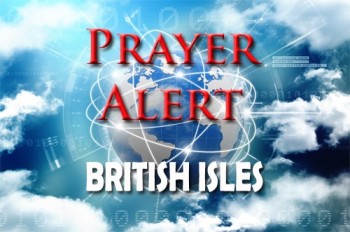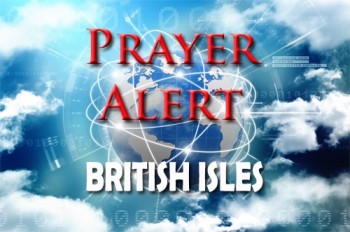Displaying items by tag: Rachel Reeves
Reeves must raise tax to cover £41bn gap, says thinktank
The Government faces a £41.2 billion shortfall that could force Rachel Reeves to raise taxes this autumn to meet her own borrowing rules, according to the National Institute of Economic and Social Research (NIESR). Reeves has pledged that day-to-day spending will be covered by tax revenue and that national debt must fall as a share of income within five years. NIESR recommends moderate tax rises, including reforming council tax and expanding the scope of VAT, to reassure investors. Labour has previously ruled out tax hikes on 'working people’, but Reeves now faces a difficult balance between honouring manifesto promises, controlling debt, and funding public services. NIESR also urged the Government to focus on growth, productivity, and welfare reform. The poorest 10% remain worse off than before Covid. With sluggish growth projected, the autumn Budget is expected to be the most challenging of this Parliament. Breaking news: the Bank of England has cut its interest rate to the lowest for four years, which will benefit those paying mortgages. See
IMF: ‘Bank of England must cut interest rates to save UK economy’
The International Monetary Fund (IMF) has urged the Bank of England to cut interest rates at least twice more in 2025 to support the UK economy. The Bank’s base rate currently stands at 4.25%, down from a post-Covid peak of 5.25%, following efforts to reduce inflation, which has now eased to 3.6%. Despite slight improvements in GDP projections - 1.2% for 2025 and 1.4% for 2026 - the IMF warned that global trade uncertainty and fiscal deficits could disrupt recovery. Chancellor Rachel Reeves welcomed the UK’s position as the fastest-growing G7 economy in Europe but faces criticism over recent tax increases, including higher National Insurance contributions and the extension of inheritance tax to pensions. Bank Governor Andrew Bailey suggested these tax hikes may be dampening business investment and wage growth. The IMF highlighted risks of financial market volatility and called for a cautious yet responsive approach. As global economic pressures persist, the UK must balance fiscal discipline with growth-friendly policies that promote employment, investment, and long-term stability. See
Borrowing costs jump and pound falls on Chancellor's tears
Financial markets reacted sharply this week after Rachel Reeves appeared tearful during Prime Minister’s Questions, after the Government’s sudden U-turn on welfare reforms. Sterling fell by 1% against the dollar, while UK borrowing costs surged in one of the largest single-day moves since the market turmoil following Liz Truss’s 2022 mini-budget. The welfare reversal has left an almost £5 billion gap in Reeves’s fiscal plans, prompting investor concerns about how the Government will balance the books. While Downing Street insisted Reeves retains Starmer’s full support, analysts say the episode highlights market anxiety over potential leadership instability and future fiscal policy. Speculation mounted about possible tax rises in the autumn, though ministers reiterated pledges not to increase income tax, VAT, or National Insurance. Despite the turbulence, experts noted that markets are not as fragile as during the 2022 crisis.
Reeves presents her spending review
Rachel Reeves’ new spending review represents a pivotal moment for the Labour government, aiming to launch a narrative of 'renewal' after a challenging first year. With £600 billion allocated over four years, the review balances significant capital investment with modest growth in day-to-day departmental spending. Major announcements include £14.2 billion for nuclear power at Sizewell C, £15 billion for public transport in the North and Midlands, and a new rail link between Liverpool and Manchester. An additional £113 billion in capital spending will target the government's three pillars: health, security, and the economy. However, this largesse will be offset by tighter controls on daily budgets, with unprotected departments - particularly the Home Office and local councils - facing real-term cuts. Discontent is rising over pressure to reverse disability cuts, lift the two-child benefits cap, and increase winter fuel support. While Reeves insists the rises are funded by tough tax decisions, growing public dissatisfaction may force further fiscal changes by autumn. The Government hopes visible investment projects will reassure voters and build lasting trust. Breaking news: the UK economy shrank by 0.3% in April, a worse result than expected, which Reeves has described as ‘disappointing’. See
Reeves announces £15bn for transport projects
Rachel Reeves has unveiled £15.6 billion in transport investment across England’s regions, marking a major shift in infrastructure funding and regional priorities. Targeting areas long considered underfunded, the funding will support tram, train, and bus developments in the Midlands, the North, and the West Country. Greater Manchester and the West Midlands will receive over £2 billion each for tram expansions, while £2.1 billion will launch the West Yorkshire Mass Transit system. There are also major sums for Liverpool, the North East, the East Midlands, Tees Valley, and South Yorkshire. This investment marks Reeves' first open move away from the stringent rules in the Treasury’s traditional Green Book rules, which have long favoured London. Though some projects were originally introduced under the Conservatives, Labour has reviewed and restructured them. While regional leaders praised the announcements, critics called for tangible results rather than mere promises.
More pensioners to get winter fuel payments this year
Rachel Reeves has announced that more pensioners will qualify for winter fuel payments this year, following the backlash over Labour’s 2024 decision to cut the benefit for most retirees. While she confirmed the means-test threshold will rise, she did not specify by how much, and at Prime Minister’s Questions, Keir Starmer also failed to clarify how many of the ten million affected pensioners will regain eligibility. Labour’s original decision to means-test the payment reduced eligibility from 11.4 million to just 1.5 million, limiting it to pensioners receiving benefits like Pension Credit. The move, intended to save £1.5 billion annually, was part of an effort to address what Labour calls a £22 billion fiscal gap left by the previous government. Critics, including Kemi Badenoch, accused Labour of lacking preparation and transparency. Reeves insisted the government remains committed to easing winter costs for vulnerable seniors but acknowledged that specifics are still being finalised.
Britain set for a new trade partnership with EU
Britain and the EU are set to formalise a new strategic partnership to strengthen trade ties and present a united front against Donald Trump's global tariff agenda. A leaked draft declaration, dated 25 April, affirms a mutual commitment to ‘free and open trade’ and to maintaining global economic stability. The agreement will be signed at a UK-EU summit on 19 May, marking a key moment in post-Brexit relations. Meanwhile, the Government is engaged in separate negotiations with the USA, aiming to soften the impact of existing tariffs - currently 10% on UK goods and 20% on EU exports. US press secretary Karoline Leavitt said that talks are ‘moving in a very positive way’. Rachel Reeves met with US treasury secretary Scott Besent last week, emphasising that both UK-EU and UK-US trade relationships are vital. Despite Trump reportedly viewing the 10% UK tariff as a minimum, British officials remain optimistic about securing a mutually beneficial deal.
Spring Statement: Reeves extends welfare cuts, OBR halves growth forecast
Rachel Reeves' Spring Statement revealed the Office for Budget Responsibility (OBR) has halved the UK's 2025 growth forecast from 2% to 1%. In response, Reeves announced deeper welfare cuts, including freezing the health element of Universal Credit for new claimants until 2030 after a 50% reduction. Cuts to Personal Independence Payments (PIP) eligibility will affect 800,000 people, with an average annual loss of £4,500. These measures are projected to save £4.8 billion by 2030, though 250,000 more people, including 50,000 children, may fall into relative poverty. Defence spending will rise to 2.5% of GDP by 2027 and 3% in the next parliament, funded by a reduction in overseas aid. Departmental budgets will grow by 1.2% above inflation, slightly less than the 1.3% previously forecast, posing significant pressures. Despite criticism from shadow chancellor Mel Stride, Reeves denied this was ‘austerity 2.0’, insisting it would lift families out of poverty.
Billions in spending cuts expected, including welfare, in spring statement
Rachel Reeves is expected to announce billions of pounds in spending cuts - possibly including welfare - during her spring statement on 26 March. Facing economic challenges and her self-imposed fiscal rules, Reeves cannot borrow for day-to-day spending, leaving cuts as one of her only options. The Treasury is submitting proposals to the Office for Budget Responsibility (OBR) ahead of its economic forecast. Reports suggest that a four-point plan of planning reform, Whitehall cuts, regulation cuts, and welfare cuts will be central to Reeves' strategy. Her fiscal policies require maintaining a £10 billion buffer, yet sluggish growth and rising borrowing costs are forcing difficult decisions. The Government is also bracing for economic impacts from global trade challenges, including Donald Trump’s trade policies. The government faces tough choices between tax hikes or further cuts: the outcome of its decisions will significantly impact public services and financial stability in the coming years.
Reeves backs Heathrow expansion plans
Rachel Reeves has unveiled major infrastructure projects, including support for a third runway at Heathrow Airport. Her speech highlighted Labour’s commitment to economic growth, despite opposition. She emphasised that growth 'will not come without a fight’. Key projects include developing a 'growth corridor' between Oxford and Cambridge, upgrading transport links, building nine new reservoirs, and redeveloping the Old Trafford football ground. However, the lack of public funding for these initiatives raises concerns about feasibility. Heathrow’s expansion is controversial, with critics arguing it will harm the environment and increase costs for airlines. London mayor Sadiq Khan and green energy entrepreneur Dale Vince oppose the plan, and the Conservatives and Liberal Democrats argue that the government’s approach is ineffective. Despite these challenges, Labour insists that investing in infrastructure is crucial for long-term prosperity and ensuring the UK is not left behind in global development. See
